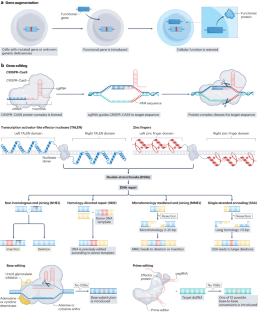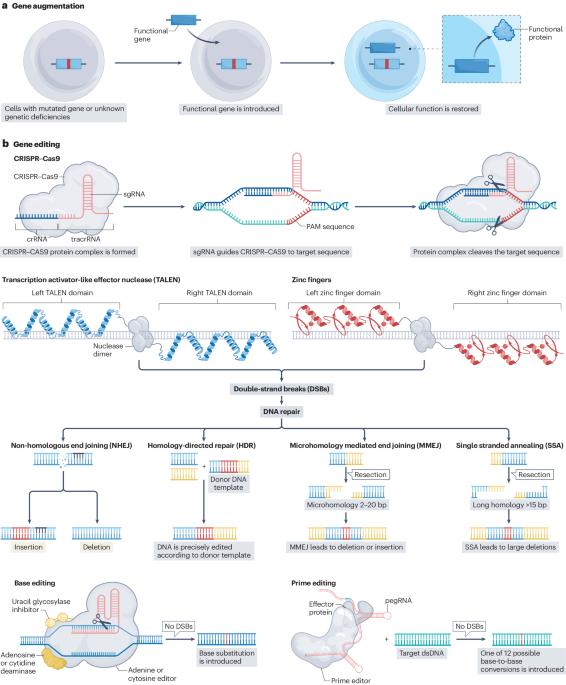Gene therapy for CNS disorders: modalities, delivery and translational challenges
IF 26.7
1区 医学
Q1 NEUROSCIENCES
引用次数: 0
Abstract
Gene therapy is emerging as a powerful tool to modulate abnormal gene expression, a hallmark of most CNS disorders. The transformative potentials of recently approved gene therapies for the treatment of spinal muscular atrophy (SMA), amyotrophic lateral sclerosis (ALS) and active cerebral adrenoleukodystrophy are encouraging further development of this approach. However, most attempts to translate gene therapy to the clinic have failed to make it to market. There is an urgent need not only to tailor the genes that are targeted to the pathology of interest but to also address delivery challenges and thereby maximize the utility of genetic tools. In this Review, we provide an overview of gene therapy modalities for CNS diseases, emphasizing the interconnectedness of different delivery strategies and routes of administration. Important gaps in understanding that could accelerate the clinical translatability of CNS genetic interventions are addressed, and we present lessons learned from failed clinical trials that may guide the future development of gene therapies for the treatment and management of CNS disorders. Recent advances in the development of gene therapy tools provide hope that these approaches might modulate the altered gene expression that characterizes many CNS disorders. Gao et al. provide an overview of current gene therapy strategies, highlighting the interdependence of therapeutic modality, delivery vehicle and administration route for translational success.


中枢神经系统疾病的基因治疗:模式、传输和转化挑战
基因疗法正在成为调节异常基因表达的有力工具,而异常基因表达是大多数中枢神经系统疾病的标志。最近获批用于治疗脊髓性肌萎缩症(SMA)、肌萎缩性脊髓侧索硬化症(ALS)和活动性脑肾上腺白质营养不良症的基因疗法所具有的变革潜力正鼓励着这种方法的进一步发展。然而,大多数将基因疗法应用于临床的尝试都未能进入市场。现在迫切需要的不仅是针对相关病症定制靶向基因,而且还要解决给药难题,从而最大限度地发挥基因工具的效用。在本综述中,我们将概述中枢神经系统疾病的基因治疗模式,强调不同给药策略和给药途径之间的相互联系。我们还介绍了从失败的临床试验中汲取的经验教训,这些经验教训可能会指导未来治疗和管理中枢神经系统疾病的基因疗法的发展。
本文章由计算机程序翻译,如有差异,请以英文原文为准。
求助全文
约1分钟内获得全文
求助全文
来源期刊

Nature Reviews Neuroscience
NEUROSCIENCES-
自引率
0.60%
发文量
104
期刊介绍:
Nature Reviews Neuroscience is a multidisciplinary journal that covers various fields within neuroscience, aiming to offer a comprehensive understanding of the structure and function of the central nervous system. Advances in molecular, developmental, and cognitive neuroscience, facilitated by powerful experimental techniques and theoretical approaches, have made enduring neurobiological questions more accessible. Nature Reviews Neuroscience serves as a reliable and accessible resource, addressing the breadth and depth of modern neuroscience. It acts as an authoritative and engaging reference for scientists interested in all aspects of neuroscience.
 求助内容:
求助内容: 应助结果提醒方式:
应助结果提醒方式:


